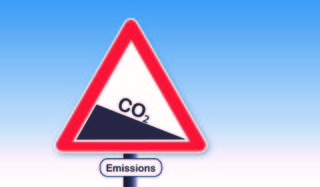-
Global carbon emissions did not rise in 2019, while economy grew 3%
Date posted:
-
-
-
Post Author
Patrick LaveryCombustion Industry News Editor
-
-
![]()
In some positive news, global carbon dioxide emissions did not rise in 2019, the International Energy Agency has reported. Increased use of renewables, fuel switching from coal to gas, and higher use of nuclear power all contributed to the result, where broadly, developed economies decreased their emissions and developing economies increased theirs. (This is always a somewhat misleading division, of course, as global trade means countries also ‘import’ and ‘export’ emissions.) Fatih Birol, head of the IEA, said in regards to the information that the “clean energy transition is starting to accelerate very strongly. This makes me hopeful we are seeing a peak in emissions and they will now start to decline.” There are signs that economic growth is decoupling from emissions from power generation, as emissions remained steady at 33 Gt CO2 while the global economy grew by close to 3%. A 3% decline in emissions occurred in the US, where plentiful shale gas encouraged utilities to switch more coal-fired capacity to gas, while the EU cut its emissions as a block by 5%, where power generation from coal fell by an astonishing 25%. Japan’s emissions fell 4% as some nuclear plants were restarted. The flatlining of emissions is indeed hopeful, but the world was also hopeful in 2016, when emissions did not rise from 2015, and subsequently, emissions rose in 2017 and 2018. Much will hinge on when China’s emissions peak, so that global emissions can then begin to fall.

